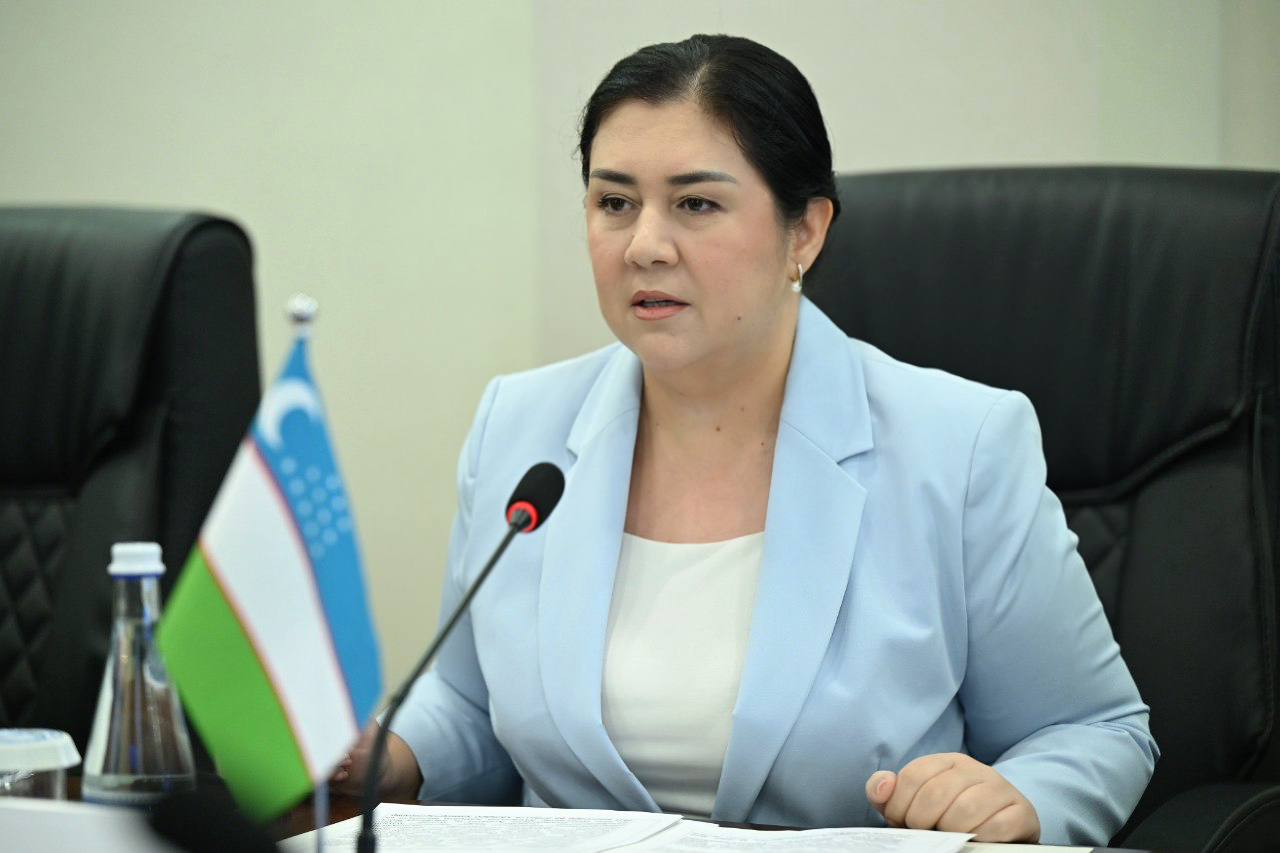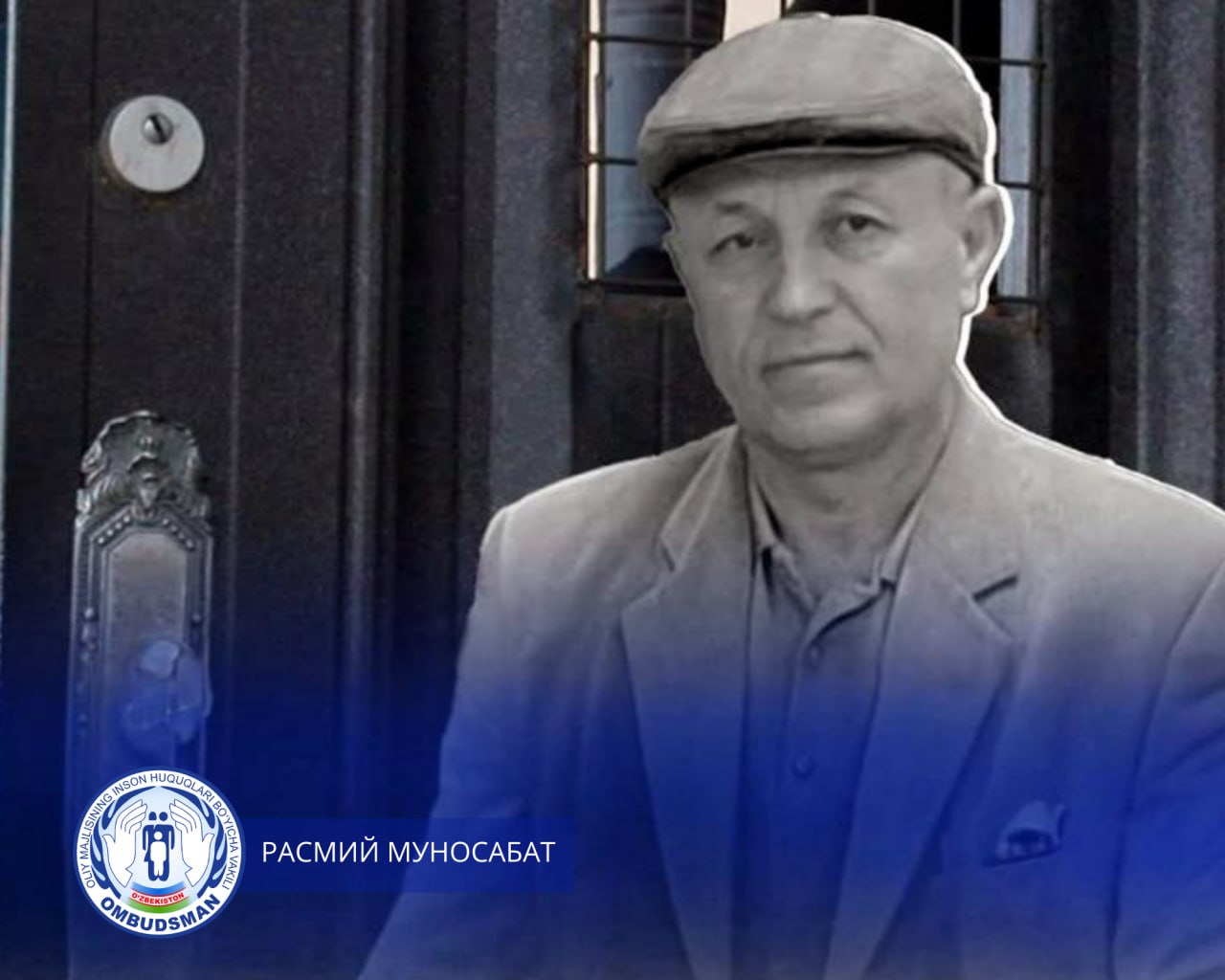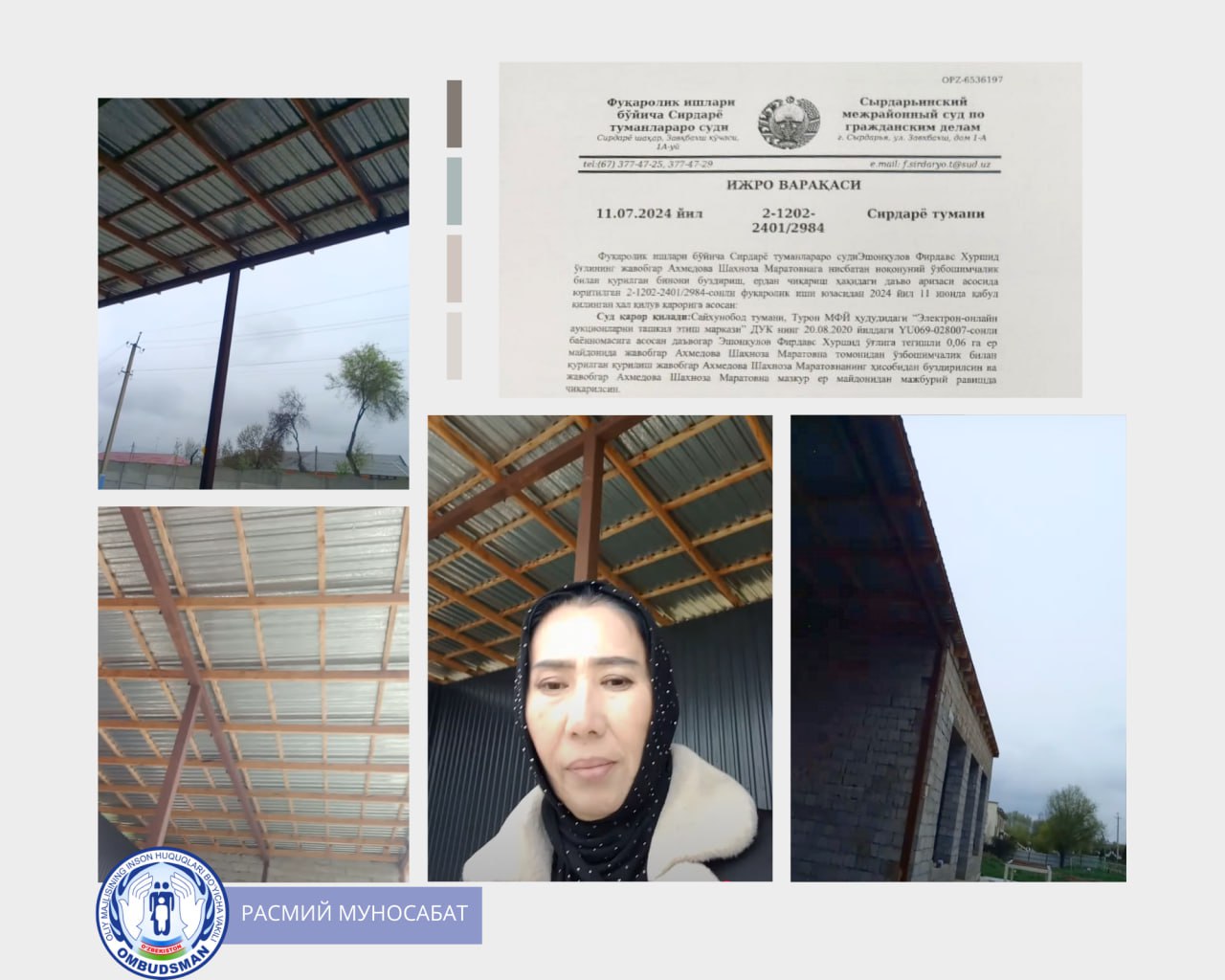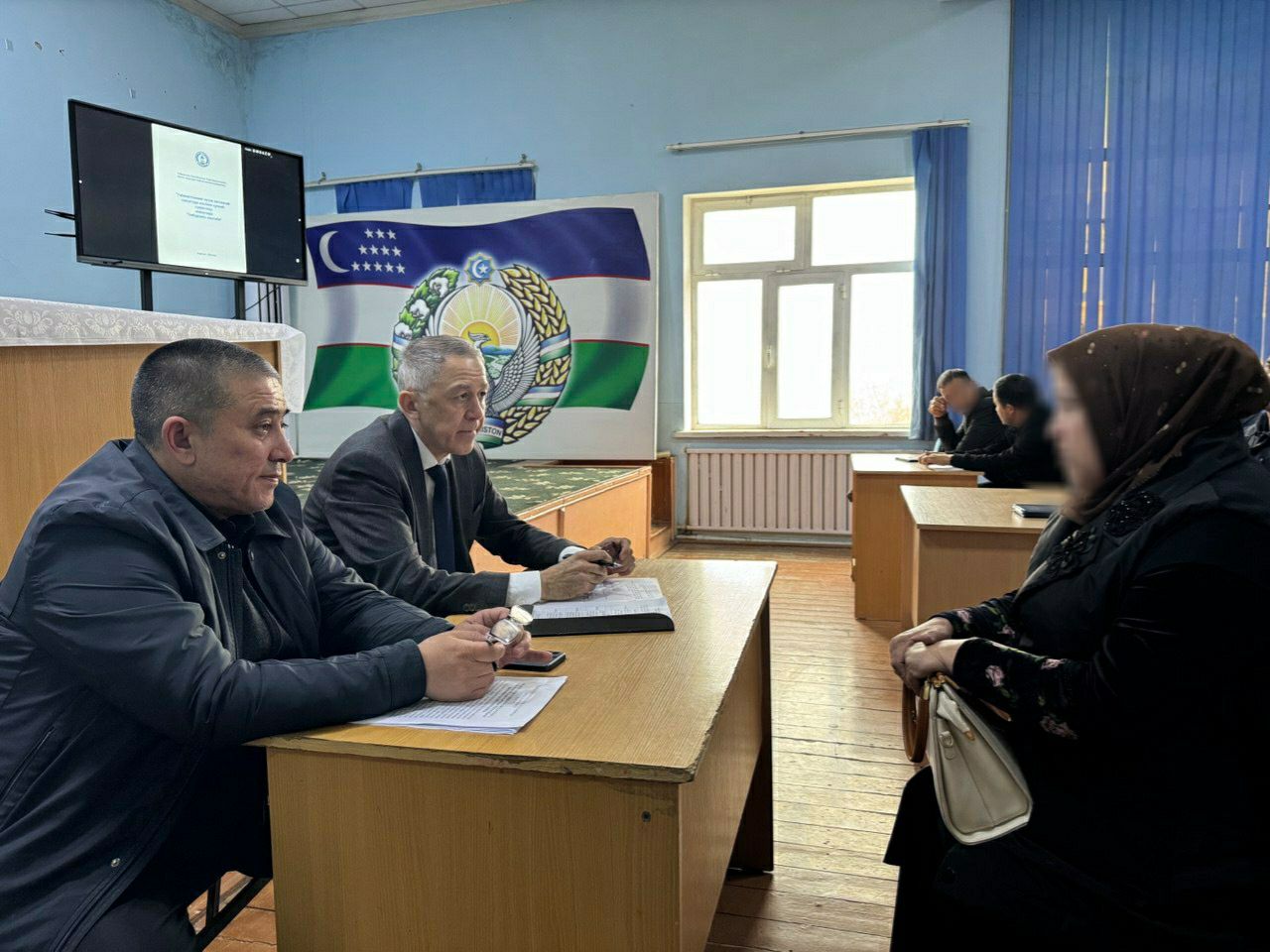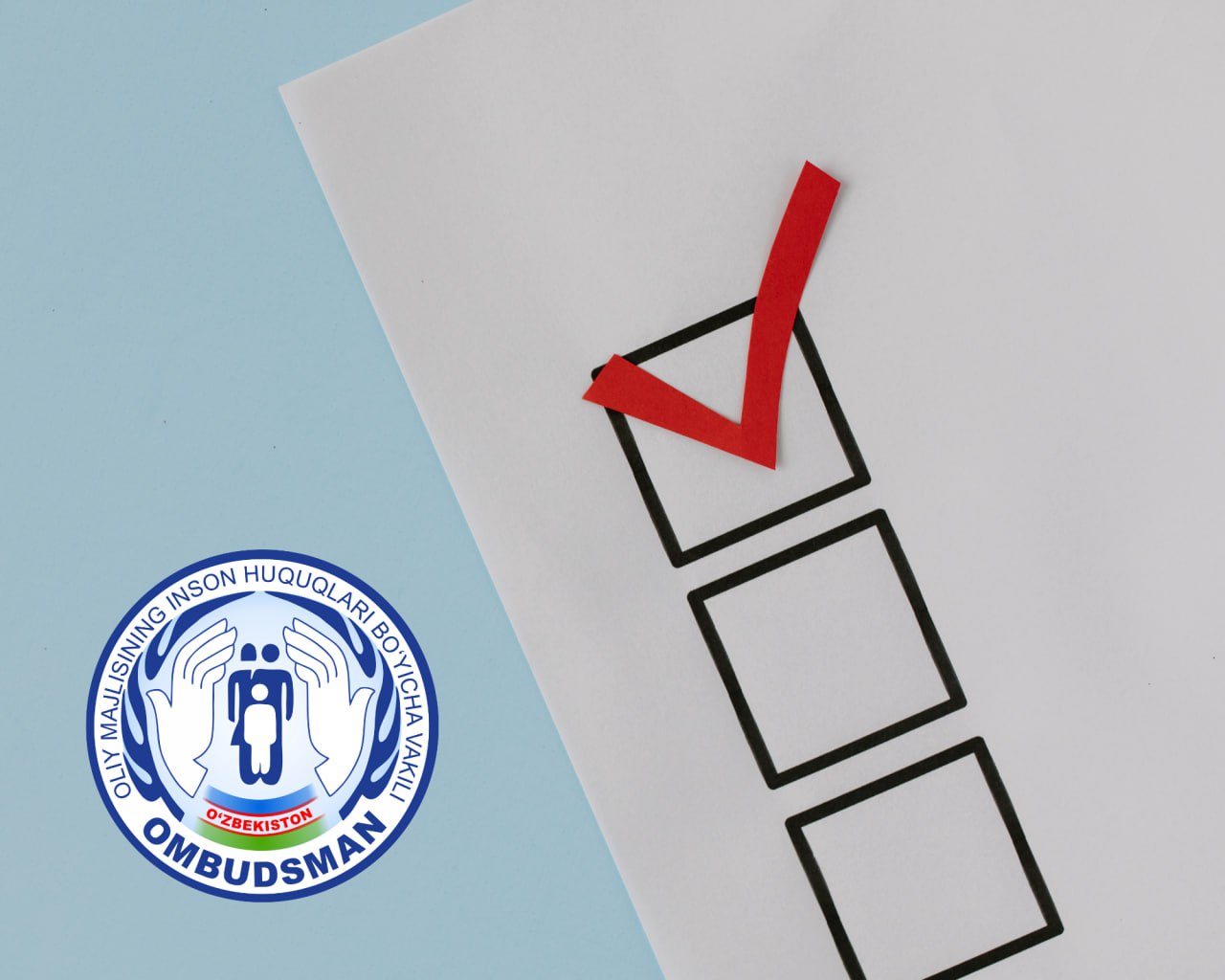Article 5 of the UN's Universal Declaration of Human Rights expressly states that no one shall be subjected to torture or to cruel, inhuman or degrading treatment or punishment.
According to the report by the "Amnesty International" released in April 2024, issues related to human rights violation, including torture and various forms of cruel treatment of people, were observed in 155 countries around the world in 2023.
Freedom from torture is among the fundamental human rights that must be protected in any circumstances. Thus, Uzbekistan stands uncompromising on its path of fight against torture.
The amended Constitution of the Republic of Uzbekistan clearly stipulates that the honor and dignity of human person are inviolable and no circumstance whatever may be invoked as a basis for denigration, no one shall be subjected to torture, violence, other cruel, inhuman or degrading treatment or punishment.
Also, with more advanced norms on torture prevention introduced to the Constitution, it has been amended accordingly. As a document of supreme legal authority, the Constitution firmly establishes that a person cannot be found guilty or punished in case if their confession is the only evidence against them. This became an important step towards eradication of torture-causing factors.
Moreover, pursuant to the Constitution, no person may be arrested, imprisoned or kept in custody except upon the court order, and no person shall be kept in detention for beyond 48 hours without a committal order.
By now, Uzbekistan has entered into more than 80 international legal documents in human rights domain, including 7 core UN treaties and 4 optional protocols.
Uzbekistan gained its specific experience and track record in fulfilling its international obligations, including the fight against torture.
Noteworthy, Article 235 of the Criminal Code of the Republic of Uzbekistan sets out criminal liability for torture and other cruel, inhuman or degrading treatment and punishment, providing greater punitive measures against the persons who commit torture as well.
Also, the Law "On introducing supplements to the Civil Code of the Republic of Uzbekistan aimed at improving the procedure of compensation for damages caused to the victims of torture" envisages compensation payout for physical and mental health injury, material damage or lost profits, moral damage caused to the victims of torture as well as expenses borne by them for legal aid, drugs and medical services, psychological and social services.
At this point, the major reforms implemented in the field of human rights, particularly, those targeting eradication of torture, deserve to be mentioned. In 2019, within the Action Strategy for 2017-2021 a national preventive mechanism for the prevention of torture and other cruel, inhuman or degrading treatment and punishment was launched under the Ombudsman. It enabled regular access of the Ombudsman and civil society representatives to the custodial facilities with restrictions on the movement in order to study the conditions persons detained are kept in and ensured communication with them.
It is no secret that many international organizations kept mentioning "Jaslyq", located in the Republic of Karakalpakstan, as the worst prison in Central Asia in terms of harsh conditions and mistreatment of inmates for a long time. This penal facility undermined Uzbekistan's reputation internationally for years. The UN Committee against Torture recommended closing of "Jaslyq" prison. In accordance with the Resolution of the President of the Republic of Uzbekistan dated August 2nd, 2024 Special Penitentiary Colony No.19 based in Jaslyq settlement (Republic of Karakalpakstan) was closed. International community has acknowledged this resolution of the leader of our country as a positive development in ensuring human rights in Uzbekistan.
Noteworthy, the work in this domain was not limited to the above. This was one of the first steps taken by Uzbekistan towards the prevention of torture.
Considering that the protection of human rights is a continuous process, the improvement of the mechanisms of fight against torture is ongoing in our country. In particular, Presidential Decree dated June 26th, 2021 "On additional measures to improve the system of detection and prevention of torture" is focused not only on early identification and eradication of this evil, but also aims to render comprehensive assistance to the victims of torture and to compensate for the injuries/damage caused to them. Moreover, the Resolution improved the National Preventive Mechanism (MPM) under the Ombudsman, establishing on the basis of the expert groups dedicated civil society groups under Ombudsman to detect and prevent torture. They are in charge of identifying torture and submitting claims to the respective authorities for their prompt eradication, as well as participating in the review of complaints on incidents of torture.
According to the data, 177 monitoring visits were conducted in 2021, the number that doubled to 381 in 2022, and in 2023 this figure increased to 603. As a result, parliamentary and public oversight was established over torture prevention. Analytical data and information, conclusions and presentations as well as claims on eradication of shortcomings identified during monitoring visits are prepared and submitted for consideration to the respective ministries and agencies. Moreover, the results of this monitoring are reflected in Ombudsman's annual report submitted to Oliy Majlis (Parliament).
Also, as stipulated, the Children's Ombudsman, the Business Ombudsman and the National Center for Human Rights shall have unimpeded access to custodial facilities with restrictions on the movement.
Based on the studies conducted by the Ombudsman in cooperation with civil society representatives, in 2023 an alternative report produced by the Ombudsman was included in the report of the Government of Uzbekistan on implementation of the Convention against Torture and Other Cruel, Inhuman or Degrading Treatment and Punishment to the respective UN Committee in 2023. This report was developed together with representatives of a number of NGOs.
As a result of monitoring visits led by the Ombudsman with a purpose to identify and eradicate torture incidents the conditions and treatment of convicts and prisoners in custodial facilities with restrictions on the movement are being upgraded according to the international standards. The opportunity to appeal to the Ombudsman was created for convicts and prisoners using the "Ombudsman's boxes" installed in these penitentiary facilities. Observing confidentiality, these appeals are delivered to the Ombudsperson without any hindrance and nuisance, and actions are taken to resolve them. The convicts's right to appeal to the Ombudsman by means of the "Ombudsman's Box" is stipulated in the Criminal Procedure Code of the Republic of Uzbekistan.
Presidential resolutions above set forth comprehensive measures to fight and prevent torture. Introduction of a single e-register of the persons kept in custodial facilities with restrictions on the movement is among these steps.
Under this mechanism the staff members of the concerned authorities and institutions shall be liable to promptly reflect in the e-register the data on inmates kept in custodial facilities with restrictions on the movement, such as date and reason of imprisonment, medical condition and other relevant facts. This serves to prevent adverse incidents such as detention with no legal grounds, hiding information, and attempts to obtain testimony by use of physical force.
Online access to this e-registry, granted to the Ombudsman court and prosecution authorities, promotes transparency along with further strengthening accountability and oversight.
Thus, as established by the procedure, information on persons detained on suspicion of committing a criminal offence, being held under administrative detention, with no fixed abode, under preventive detention, sentenced to deprivation of personal liberty, undergoing compulsory treatment in psychiatric hospitals or drug abuse facilities within the scope of coercive medical measures shall be a subject to mandatory entry into the e-register.
In accordance with the new procedure, failure to enter the data on persons placed in custodial facilities with restrictions on the movement into the Single E-Register within the specified period, it shall be equated to unlawful detention of these persons and give rise to the liability established by law.
Aiming at timely detection of violence, torture, and unlawful acts against person being kept in prisons in timely manner, a number of measures have been taken to introduce digital technologies, including intelligent smart cameras, video recorders, X-ray scanners, e-shops as well as online meeting service into the operations of the penal system. Definitely, dgitalization of the processes within this system will facilitate the work of the staff members working in the penal institutions along with increasing their responsibility. Ultimately, torture incidents prevention shall paved the way for human rights protection.
The scope of this article is limited to the major steps taken on the path of the fight against torture. We refrained from mentioning efficient reforms emphasizing protection of legal rights and freedoms as well as social support rendered to the persons kept in custodial facilities with restrictions on the movement. Generally, comparing current conditions in custodial facilities with restrictions on the movement with the environment observed 7-8 years ago, we can clearly see significant changes. Obviously, these improvements stem from the system-wide reforms and the establishment of public oversight.
Outcomes of Uzbekistan's efforts to protect human rights can be traced in international rankings. Uzbekistan ranks 78th among 140 countries in the Rule of Law Index released in 2024 by the "World Justice Project" international civil society organization, surpassing Serbia, Albania, China, Belarus, Kyrgyzstan, Russia, Turkey and some other countries. The ranking demonstrates improvement in all 8 indicators achieved by Uzbekistan.
Moreover, UN Secretary General António Guterres at the meeting with the President of Uzbekistan as a part of his visit highly appreciated large scaled work carried out within a short time in Uzbekistan with the reference to his first trip to our country 20 years ago, and the second visit took place right after being appointed to his current post. He stressed that Uzbekistan has embarked and is fully committed to protection of the rights and legal interests of its citizens.
In conclusion, Uzbekistan sees the fight against torture is an important priority in human rights protection domain. It can be stated with a confidence that Uzbekistan has its specific advanced experience in human rights protection. International community recognizes legal reforms conducted in Uzbekistan, establishing public oversight and the country's commitment to international obligations as important components of protecting human dignity. Principally, people of the country experience the impact of these changes in their daily life. We do believe that these efforts will be continued further, and human honor and dignity will be respected in a greater extent.
On February 22, 2021 the President of the Republic of Uzbekistan Shavkat Mirziyoev stated at the 46th session of the UN Human Rights Council that "as a part of introducing the national preventive mechanism for torture prevention, we absolutely prohibit any form of inhuman and degrading torture and a punishment for such offences is inevitable regardless of how long ago they were committed." These words are another evidence of Uzbekistan's strong will to protect human rights and respect human dignity.
Feruza ESHMATOVA,
Authorized person of Oliy Majlis on Human Rights (Ombudsman)













